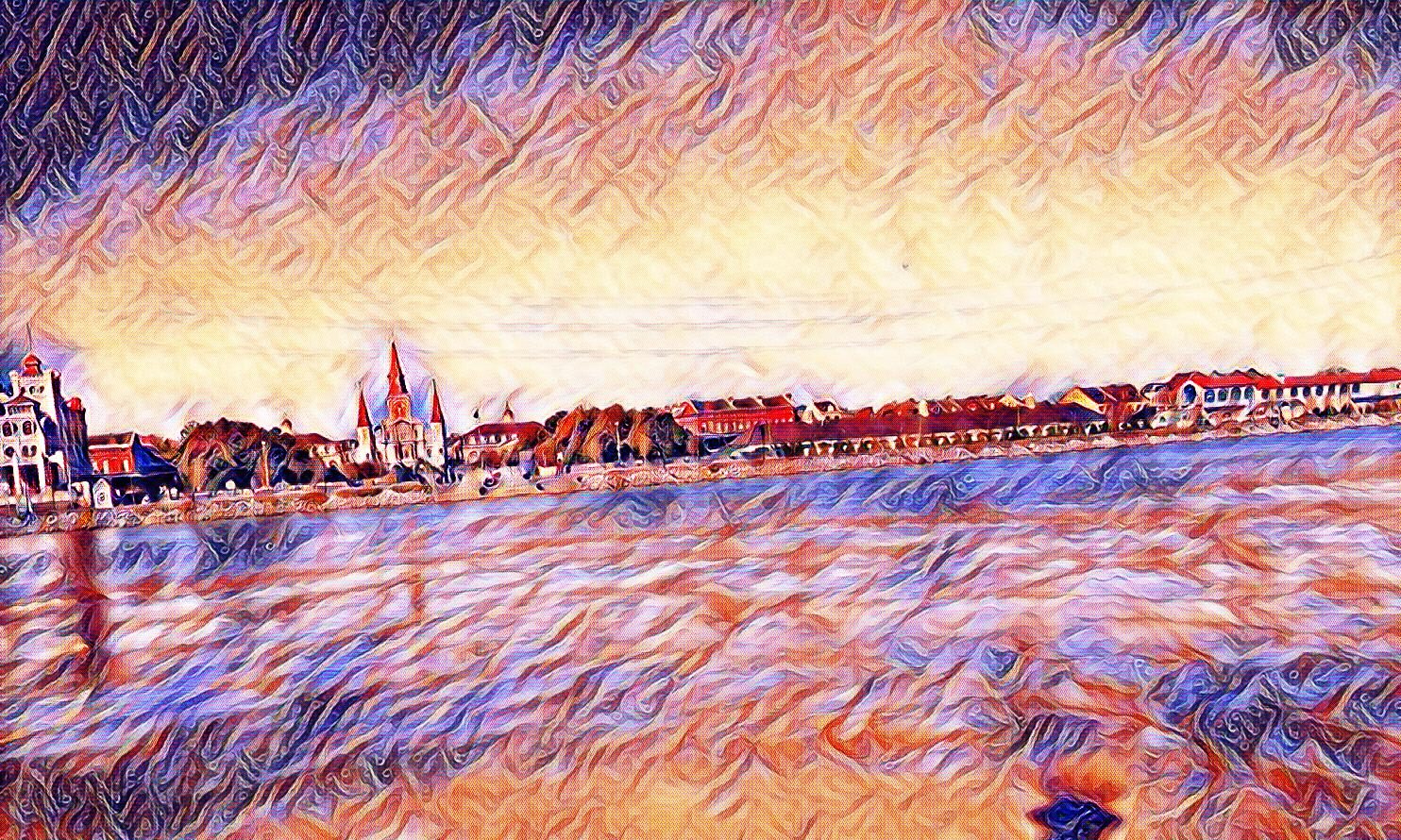This is an excerpt from my first book, Love Songs and Suicide: A Travel Memoir, Romance, and Tragic Musical Comedy. The first section is available for free. If you haven’t read a sample from my book yet, I’d recommend starting with chapter one. The book is also available on Amazon.
* * *
Chapter 4. Current Events
Back on the Steamboat Natchez, after we came about and began the downstream portion of our trip, my dad went upstairs to order a Bloody Mary. Nothing on earth—except for mayonnaise, which I firmly believe should be illegal—sounded worse to me at that moment than a Bloody Mary. We had prime seats, catching heat from the winter sun and partially shielded from the jarring winds. I held my dad’s spot.
When he returned, I looked at his cocktail in disgust and said, “I’d literally rather jump off this fucking ship than drink a Bloody Mary right now.”
“Sounds like you took it a little too far yesterday,” my dad said.
“And the day before. Those pineapple drinks just about ended me. Then I kept going.”
“It seemed like she put a lot of vodka in them.”
“Way too much.”
An old-style Mississippi cruise liner with hundreds of staterooms and a patriotic paint job passed us on the left. My dad examined the ship’s layout and construction, then uttered a refrain I’d heard countless times on our cross-country expedition.
“Don’t make the same mistakes I’ve made,” my dad said. “Danny, an old friend of mine from college, was the captain of a cruise ship similar to that one. I’m sure he’s retired by now and doing much better than I am these days. But then again, who isn’t doing better than me?”
In addition to being a former lawyer, my father has many other “former” titles on his resume: boat captain, first mate, business owner, mortgage broker, and ditch digger, to name a few. His decades of self-employment and tax avoidance tactics had limited his social security contributions and jeopardized his retirement.
After my father merged onto the highway of regrets, I promptly directed him to the nearest exit with a dash of humor. “At least you still look good,” I said. “Most people your age look like shit.”
My father sighed and then took a sip of his cocktail, unamused by my snarky and hollow comment.
I continued, “And there are plenty of less successful and less fortunate people than you in the world.”
“I know,” my father said. “And look at us now, on this trip. We’re seeing places that most people will never get to see.”
As a neutered clarinet solo impotently dripped onto the deck and polluted the surrounding airwaves, another gust of cold air penetrated my hungover body. I shivered and felt violated.
The weather reminded my father of Washington. He said he missed it. I missed some of my friends, and certainly Amelia, but not the state itself. Even though I lived there for well over two decades, Washington never felt like home to me.
Maybe I used the state as a scapegoat for my lack of success in other areas. Perhaps my parents’ divorce played a role. She chose California. Like every other California castoff in the late ‘80s and early ‘90s, he moved to Washington. I was their only child and picked Washington too, but only because things got too crazy in California.
We sailed past downtown New Orleans and approached the Natchez’s home port.
“I think you’ll like Florida,” my dad said. He was still considering other retirement destinations, such as Texas and Arizona, but Florida was the clear frontrunner.
A couplet from the song “Santa Monica” played through my internal sound system, interrupting the clarinet solo. I’ve rewritten that couplet to avoid fees (music publishers are rapacious scoundrels). “Santa Monica” is a song about Everclear singer Art Alexakis’s heroin addiction. While looking upstream at nothing in particular, I quietly sang, “I just wanna feel the ocean breeze. And I swear someday I will beat my disease.”
“What?” my dad asked.
“Nothing,” I said. “I hate winter. Florida sounds pretty good right about now.” I wasn’t sure what I intended to do once he got settled in a new place, but I looked forward to visiting the Sunshine State.
The jazz band’s leader thanked the audience before introducing their last song, or should I say, number. “I think everyone knows this one,” he announced.
“God, they better not,” I said. “It’s too obvious. They better not play ‘When the Saints go Marching in.’”
Seconds later those first four instantly recognizable notes rang out with no lyrical accompaniment needed. “Oh, when the saints . . .”
And sure, part of me wanted to launch their goddamn instruments one by one into the river. But upon further reflection, I realized I was the one with the problem. I knew I needed to be more tolerant of jazz bands I arbitrarily dubbed “too white,” of innocent patrons at all-you-can-eat buffets on cruise ships, and of people in general.
However, apologies to you, Mr. Twain. I know I borrowed a famous line of yours in chapter one, but you were wrong and a correction is in order. No matter how far I travel in this lifetime or the next one, I will always—yes, always—be prejudiced against mayonnaise.

Next → Chapter 5: Memories (the Morning After)

R. Ross Horton is a writer, editor, and musician based in Palm Coast, FL. Last year he published his first book, Love Songs and Suicide: A Travel Memoir, Romance, and Tragic Musical Comedy. At Lovesong.blog, Ross strives to help people find harmony in a chaotic world. Visit this website’s about page to learn more.

